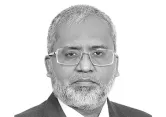What you must know about sustainable banking activities in Bangladesh
By Md. Touhidul Alam KhanSustainable banking is getting momentum in developing countries and Bangladesh has been one step ahead now by initiating particular sustainable banking activities in various fields. The country has many success stories surrounding corporate governance, corporate social responsibility, social awareness of stakeholders, preparing sustainability reporting under globally accepted method-GRI (Global Reporting Initiative) and leadership with green banking being one of the most notable initiatives. In 2011, Bangladesh Bank (‘BB’), the regulatory authority of commercial banks in Bangladesh, issued “Policy Guidelines for Green Banking” to implement and promote green banking activities across the country in three phases.
Sustainable banking is a key driver to confirm the world’s overall wellbeing in accordance with the United Nations Sustainable Development Goals (SDGs) which are to be achieved by 2030. As an integral part of sustainable banking, sustainable development is directly associated with the economic, environmental, and social aspects. Sustainable banking aims for greater development through more promising financing opportunities which need to be sustainable in all of these three aspects. While financial return and risk are the only focus of traditional banking activities, sustainable banking has its focus on the environmental, economic, and social returns emphasizing the transition from the existing narrow shareholder model to the framework of a large volume of stakeholders and aiming at adding long-term value to the broader community. In 2010, Bangladesh Bank announced a financial scheme of an estimated BDT 2.00 billion to encourage commercial banks to finance bio-gas plant, HHK (Hybrid Hoffman Kiln) in different brick fields, solar energy, and Effluent Treatment Plant (ETP) across the country. The BB scheme allows banks and other financial institutions (FIs) to seek refinance facilities at lower interest rates in favour of their individual finance in these specific sectors. During the fiscal year 2018 (FY2018), 31 out of 57 commercial banks and 8 out of 33 FIs received BDT 71.35 million as direct green finances.
Sector-wise green finance in Bangladesh
The below figure-1 shows the distribution of the green finances in various sectors by banks and FIs. Around half of the finances went directly to the ‘waste management’ sector with the green establishment and brick manufacturing being in the second and third position in terms of the total finances received.
BB has a plan to provide midsize manufacturing firms, exporters, small and medium-sized enterprises (SMEs), and other private sector companies with an estimated USD 292.50 million in long-term finances partnering with the International Development Association (IDA) under the Financial Sector Support Project (FSSP) with the goal to facilitate economic development and ensure development outcomes that are environmentally and socially sustainable. BB’s share of the financing is USD 38.50 million and IDA’s is USD 254.00 million (Fiscal Year 2018).

Financing in green products
The Environment and Social Management Framework (ESMF) has already been developed to ensure that the mentioned financing is sustainable. The facility is available to the mentioned business avenues on both refinancing and on-lending terms and will extend opportunities for importing capital equipment and machinery for up-gradation (following health and safety compliance), supporting start-up manufacturing industries, relocating factories or industries to designated industrial zones, purchasing ocean vessels, and specialized delivery vehicles to facilitate the transportation of manufactured goods across the country. The disbursement trend (FY14-18) in BB refinance scheme for green products are as under:

School Banking
As part of BB’s drive for financial inclusion, school banking facilities have been introduced in November 2010. In 2013, BB introduced ‘Guidelines for School Banking’ which allows any student aged up to 18 years to open a school banking account under the supervision of a legal guardian or parents by depositing only BDT 100.00, which resulted in the number of school banking accounts reaching 1539836 with BDT 14.19 billion in balance until June 2018.
‘10 Taka Special Account’
In 2014, BB has given a guideline to encourage the ‘10 Taka Special Account’ for street urchin and working children with a view to safeguarding their hard-earned cash, securing their future, and making them financially independent. Up to June 2018, at least, 19 commercial banks came to terms with different registered NGOs under a bi-lateral agreement to offer these services. The NGOs were responsible for conducting the operation of these accounts and ensuring the account holders’ wellbeing. As of June 2018, a total of 4,684 accounts were created, and the balance reached BDT 3.39 million.
‘Agent Banking’
BB has taken initiatives to promote a financial inclusion tool that offers the poor and underprivileged section of the population mostly from remote locations, some tailor-made financial services and products which are available in their vicinity and designed to meet their typical financial needs at a reasonable cost. In 2013, Bangladesh Bank created ‘Agent Banking’ guidelines to accelerate a safe, hassle-free, and secured alternative channel to deliver financial services to the unbanked population which marks a significant initiative to promote sustainable banking in Bangladesh. The total number of agents and their account numbers reached 4,866 and 2,906,655 in Q1 2019. During the previous quarter, the numbers were 4,493 and 2,456,982 respectively. Similarly, the number of agent banking outlets reached 7,838 during Q1 2019, which was a total of 6,933 during the previous quarter. (Source: Bangladesh Bank).
Conclusion
In Bangladesh, the concept of sustainable banking is keeping on agricultural financing, financial inclusion drives, corporate social responsibility, green banking, micro and small enterprise financing along with many steps for financial inclusion activities. All of these activities and programs are clearly linked with the UN’s SDGs which Bangladesh is working to achieve by 2030. BB’s strategic interventions and policies indicate its intention to support the government initiatives by upholding the agenda of sustainable banking throughout the country.



















 Advertise
Advertise







